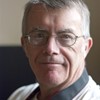- GMHC
-
Getting Started
-
Wondering where to start?
-
 We're your guide. What can this community do for you? Learn more
We're your guide. What can this community do for you? Learn more
-
-
Mobilization
-
Heed the call!
-
 Community Challenges Activate your journey to the field! Read Article
Community Challenges Activate your journey to the field! Read Article -
 Search Jobs Community Job Board Read Article
Search Jobs Community Job Board Read Article
-
-
Resources
-
Learn & Connect
-
 Upcoming Events Learn from the experts in healthcare missions & connect with others. Register Now
Upcoming Events Learn from the experts in healthcare missions & connect with others. Register Now
-
-
Community
-
Connect With the Community
-
 Member Lounge We're all in this together! Join the conversation.
Member Lounge We're all in this together! Join the conversation.
-
- Store
- Log In
Welcome to the MedicalMissions.com Podcast
This is a series of sessions from leading experts in healthcare missions.
Creativity and thinking Impact: Essential Ingredients for health care in resource constrained countries
 by Vinod Shah
by Vinod Shah
- Family Medicine
- Medical
- Public Health
- + 2 more...
Medical missions are always under resourced and Doctors and nurses struggle to cope with the enormous need with limited resources.
This presentation looks at generating creativity to fuel innovation as a possible Christian response to this problem.
If medical mission work is important and if God has called us and if we do not seem to have obvious resources then what God is saying is “Get creative”.
This presentation looks at generating creativity to fuel innovation as a possible Christian response to this problem.
If medical mission work is important and if God has called us and if we do not seem to have obvious resources then what God is saying is “Get creative”.
Sexual Discipleship
- Education
- Prayer
- Trafficking in Persons
- + 4 more...
Christians historically have been very stilted on their teaching and understanding of sexuality. As people encounter more distortions of God's gift of sexuality, it is critical that we have a practical theology of sexuality. In this workshop, Dr. Juli Slattery will teach the framework for sexuality discipleship - a comprehensive worldview of biblical sexuality.
Short Term Teams that Avoid Creating Dependency
- Church Planting
- Community Development
- Disease Prevention
- + 7 more...
This session will briefly touch on a more wholistic definition of poverty.
We will explore when relief versus development is an appropriate response.
We will understand the difference between relief/project oriented missions and developmental/transformational missions and the possible outcomes of each.
We will discuss how one particular developmental strategy, CHE (Community Health Evangelism) has resulted in lasting, significant transformation of communities throughout the world.
We will explore the challenges of transitioning from short-term missions that focus on relief/projects to developmental/transformational missions and offer suggestions for how such a transition has been managed by some churches that historically conducted short-term missions but which have experienced success in shifting from relief-based missions to development-based missions.
We will explore when relief versus development is an appropriate response.
We will understand the difference between relief/project oriented missions and developmental/transformational missions and the possible outcomes of each.
We will discuss how one particular developmental strategy, CHE (Community Health Evangelism) has resulted in lasting, significant transformation of communities throughout the world.
We will explore the challenges of transitioning from short-term missions that focus on relief/projects to developmental/transformational missions and offer suggestions for how such a transition has been managed by some churches that historically conducted short-term missions but which have experienced success in shifting from relief-based missions to development-based missions.
Opportunities to Serve
- Allied Health
- Dental
- Medical
- + 12 more...
Where you choose to serve in healthcare missions will depend on your preparedness, your call, and your goals. This workshop will help you determine how to identify service opportunities that are most likely to match up with your call and your goals. You will be given a variety of tools to use to prepare for service, and to improve your preparedness as you serve.
Lessons Learned in Starting Ministries in Resource Challenged Environment
- Non-Medical
- Other
- Public Health
- + 6 more...
This session will allow one to understand some of the obstacles of starting new ministries, understand principles of cultural sensitivity, and understand contextualization principles.




